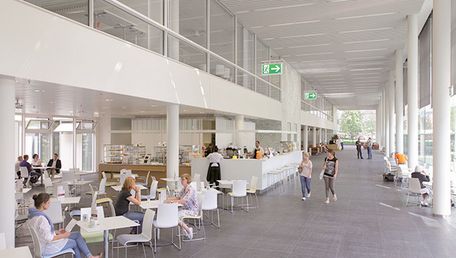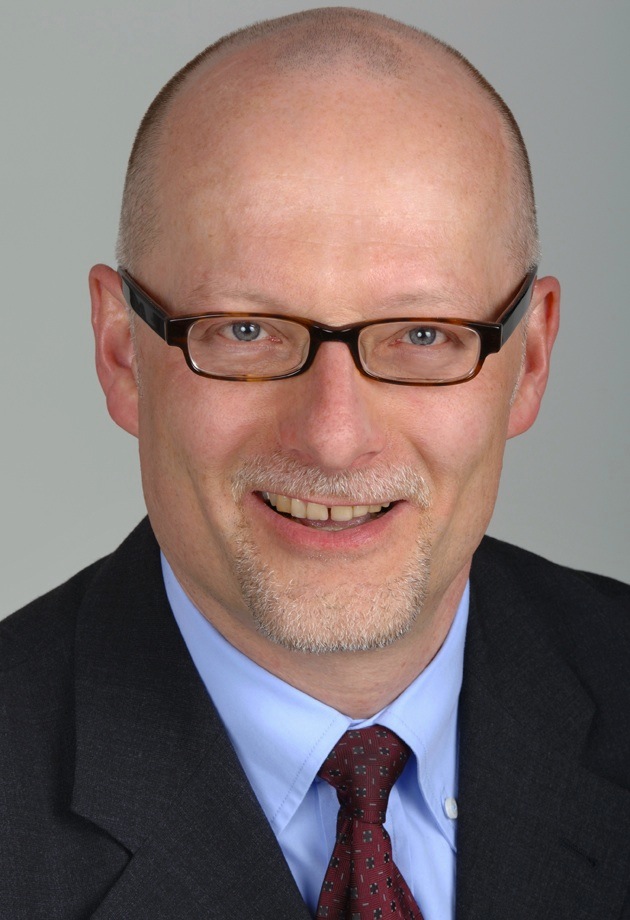Key research areas:
Signal transduction of apoptosis, autophagy and inflammation
- Mechanisms of chemoresistance in tumors
- PI3K/Akt Signaling in apoptosis and autophagy
- Signaling mechanisms involved in elimination of dying cells
- Regulation of inflammation
- Protein kinases and transcription factors
Molecular medicine is a new, future-oriented discipline at the interface of research in medicine, biochemistry, and genetics. The challenge of molecular medicine is to explain and therapeutically influence pathological alterations of the whole organism on a cellular and molecular basis. Of special interest in this context are alterations and dysfunctions concerning cell structure, proteins as well as the genetic information. Molecular medicine employs methods of DNA analysis, protein structure/function relationship and cellular biology. Know-how and technical methods of basic sciences such as molecular biology, cell biology, biochemistry and developmental biology are taken into account and applied on clinical topics of human medicine.
Research and teaching
The Institute of Molecular Medicine functions as a bridge between biomedical basic research and applied clinical research. At the institute we pursue different research foci. One focus resides in cell- and tumor-biology - with special respect to on the signal transduction of programmed cell death (apoptosis) and of the cellular starvation program (autophagy). In this context we are interested in the translation of basic science into clinial application. In context of our inflammatory research focus we investigate the signaling mechanisms in the clearance of dying cells and in how far apoptotic, post-apoptotic and necrotic cells modulate the immune response and thus contribute to the onset of inflammation and autoimmune diseases. In addition, we investigate the role of the NF-kB-inhibitor IkBz in inflammation and apoptosis.
Curriculum vitae Prof Dr. Sebastian Wesselborg
| 1982-1987 | Studiy of Biology, University of Mainz |
| 1987-1988 | Diploma thesis in the laboratory of Prof. Stefan C. Meuer at the German Cancer Research Center in Heidelberg. |
| 1989-1992 | PhD thesis in the laboratory of Prof. Dieter Kabelitz at the Institute of Immunology at the University of Heidelberg |
| 1992-1993 | Postdoctoral research fellow in the laboratory of Prof. Stefan C. Meuer at the German Cancer Research Center in Heidelberg, Germany |
| 1993-1995 | German Ministry for Education and Research (BMBF) Fellowship Award for Infectiology |
| 1993-1996 | Postdoctoral Research Fellow in the laboratory of Prof. Steven J. Burakoff at the Dana-Farber Cancer Institute, Harvard Medical School, Boston, USA |
| 1996-1997 | Postdoctoral Research Fellow in the laboratory of Prof. Klaus Schulze-Osthoff at the Institute of Biochemistry, University of Freiburg, Germany |
| 1997-1999 | Junior group leader in the laboratory of Prof. Klaus Schulze-Osthoff in the Department of Internal Medicine I of the University of Tübingen, Germany |
| 1999-2000 | Temporary leader of the Research Division of the Department of Internal Medicine I of the University of Tübingen, Germany |
| 2000 | Postdoctoral thesis ('Habilitation') in 'Molecular Medicine' at the Medical Faculty of the University of Tübingen |
| 2000-2002 | Temporary leader of the Research Division of the Department of Internal Medicine I of the University of Tübingen, Germany and group leader in the laboratory of Prof. Klaus Schulze-Osthoff at the Institute of Immunology and Cell Biology at the University of Münster, Germany |
| 2005-2011 | Member of the Research Committee of the Medical Faculty of the University of Tübingen, Germany |
| 2008-2011 | Coordinator of the Collaborative Research Center SFB 773 ''Understanding and Overcoming of Therapy Resistance in Solid Tumors'' |
| 2008-2011 | Vice-Coordinator of the Integrated Research Training Group (GRK) "Molecular Oncology" of the SFB 773 |
| 2009-2011 | Coordinator of the International Research Training Group GRK 1302 ''The PI3K Pathway in Tumour Growth and Diabetes'' (Tübingen/Germany - Dundee/UK) |
| since 2011 | Full Professor (W3) and Head of the Institute for Molecular Medicine at the Medical Faculty of the University of Düsseldorf, Germany |
More information
Visit this site under: Institut für Molekulare Medizin I





